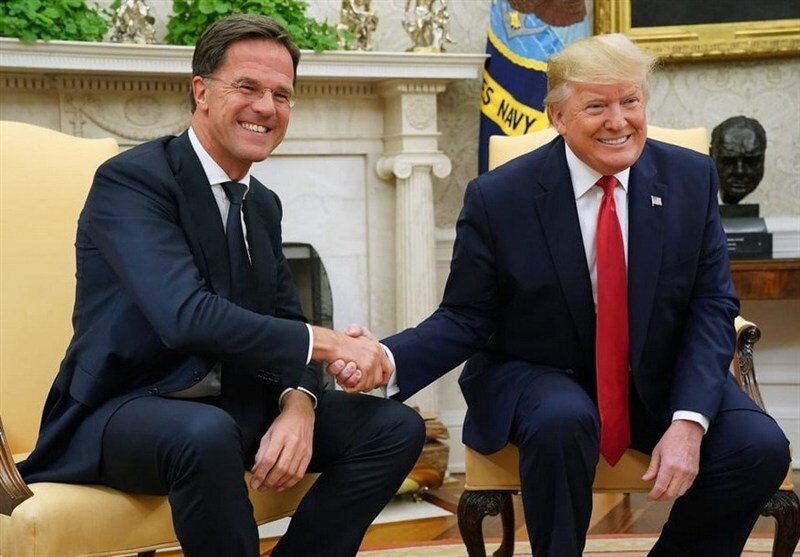NATO Secretary General Mark Rutte has come under fire after publicly congratulating former U.S. President Donald Trump for what he described as a “truly extraordinary” strike on Iran’s nuclear facilities. Despite lacking United Nations endorsement or justification under imminent threat, the NATO leadership has voiced support for the operation—raising serious concerns over the alliance’s adherence to international law and its founding principles.
The U.S. attack, which targeted nuclear sites in Fordow, Natanz, and Isfahan, came ten days after a surprise Israeli strike on Iran. The NATO response marks a troubling shift toward supporting pre-emptive warfare—an approach fundamentally at odds with Article 5 of the Washington Treaty, which outlines NATO as a defensive alliance.
Contradiction with NATO’s Founding Mission
The Washington Treaty emphasizes collective defense, stating that force may only be used if a NATO member is attacked. However, the recent strikes on Iran occurred without any such provocation and without UN Security Council approval. This raises a fundamental question: Is NATO now serving as an instrument of unilateral U.S. foreign policy rather than as a guardian of collective security?
By endorsing these attacks, NATO has deviated from its foundational purpose and appears to be legitimizing offensive military action against non-members.
Silence and Complicity Amid International Law Violations
Despite assurances from Secretary General Rutte that the strikes do not violate international law, global leaders—including UN Secretary-General António Guterres—have condemned them as dangerous escalations that breach the UN Charter’s prohibition on the use of force. NATO’s failure to publicly denounce the strikes risks normalizing violations of international norms and eroding its credibility as a force for peace.
READ MORE: China Bans Uncertified Power Banks on Domestic Flights Amid Safety Concerns
Double Standards in Middle East Policy
Critics have also pointed out NATO’s double standards in its approach to regional security. While NATO remains firm in its assertion that “Iran must never develop a nuclear weapon,” U.S. intelligence and former officials such as Tulsi Gabbard have acknowledged that Iran is not actively seeking nuclear arms. Iran remains a signatory to the Non-Proliferation Treaty (NPT), and its nuclear activities are monitored by the International Atomic Energy Agency (IAEA).
Meanwhile, Israel—NATO’s close partner—has never signed the NPT, is widely believed to possess around 100 nuclear warheads, and continues to reject calls for a nuclear-free Middle East. Yet NATO remains silent on Israel’s nuclear ambiguity and record of violating international law.
Political Instrumentalization of NATO
Rutte’s comments appear more aligned with U.S. domestic political interests than NATO’s founding values. This perception of politicization threatens NATO’s independence and risks transforming it into a tool for serving the objectives of the current U.S. administration rather than acting as a neutral security coalition.
Disregarding Public Opinion
Though NATO officially endorsed the U.S. strikes, widespread public opposition persists—especially in Europe. Demonstrations in The Hague and other cities have called for de-escalation and diplomacy. Polls show that younger Europeans, in particular, are increasingly skeptical of NATO and its close alignment with U.S. foreign policy.
By sidelining these voices, NATO risks alienating the very populations it claims to defend, further widening the gap between governments and citizens.
Mounting Costs for Europe
Military escalation in the Middle East could come at a significant cost to Europe. Potential consequences include disruptions in energy supplies, refugee crises, increased radicalization, and heightened terrorism risks.
German diplomat Wolfgang Ischinger has voiced concern over Europe’s burden from past Middle Eastern conflicts, citing strained asylum systems and rising political polarization. As European nations increasingly rely on U.S. military support, there’s a growing danger that NATO’s endorsement of U.S. operations could usher in a new era of instability—one that will impact European capitals most directly.



